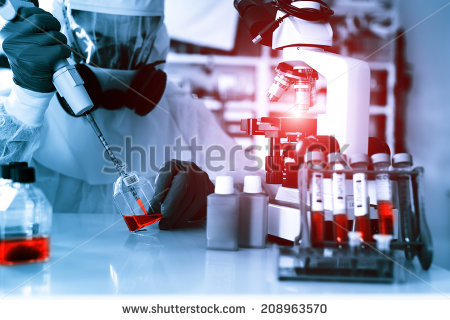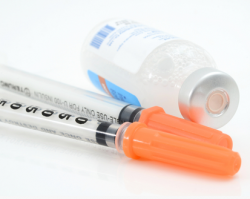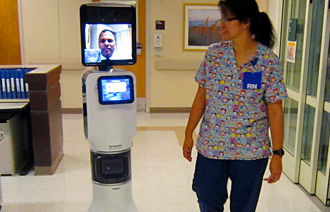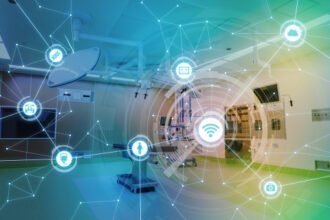While new research and developments are constantly emerging, some essentials have remained the same for bio labs. These essentials are fundamental for core bio lab functions, whether the lab in question is a hospital lab, a diagnostic lab, or any other.
So, if you’re in the process of getting your lab started, we’ve listed ten fundamental things you will need.
Freezer Storage
Any laboratory will need a suitable freezing device to store certain contents at precise temperatures. You have the option of cryopreservation liquid nitrogen controlled rate freezers, ultra-low temperature freezers, and others.
With this, it’s key to evaluate the options available and weigh in factors like energy consumption, freezer temperature controls, and space in the lab and outside the lab for tank storage.
Computer Tech
Your team’s tasks will include operations like tissue sectioning, identification, and others in any biology lab. Many of these operations will require a cryostat.
Furthermore, you’ll also need a computer or laptop. Without a laptop, day-to-day functions in the 21st century won’t be possible. Consider things like budget management, running test results, and collecting data. All of these tasks will require a computing system.
Microscopes
Microscopes are essential in all kinds of laboratory facilities. They are undeniably the foundation of many lab functions. Even carrying out the most simple task, such as examining fibers, a microscope is vital.
There are several different types of microscopes to choose from, each offering unique features and functions. So, be sure to evaluate microscope devices considering particular task requirements.
Centrifuge
A centrifuge is another valuable piece of equipment. This machine can clarify and concentrate samples that have been tested. Beyond that, it can also assist with separating substances, stir plates, and vortex shakers. Because this machine has several beneficial uses in a laboratory, it’s a worthwhile investment.
Heating Equipment
Heating equipment is of equal importance to freezing solutions in a laboratory setting. That said, there are several different heating solutions to consider. Firstly, Bunsen burners are an excellent choice, while a lab oven, a hot plate, or an incubator are also suitable options.
Nevertheless, the Bunsen burner is probably the most widely used heating solution; it’s a top option for most laboratory facilities. Even so, it would help if you still compared the available options to your lab’s particular functions.
Combustion Apparatus
Combustion burners range from flares and thermal oxidizers to process burners and refinery heaters. Lab employees need combustion apparatus to perform various lab tasks.
In some cases, a furnace or burner can be used in conjunction with a process burner to get the most out of the combustion process.
Tubing, Slides, And Petri Dishes
To conduct an experiment, a lab must have a range of tubing, Petri dishes, and slides. These are standard essentials for every laboratory.
It’s best to invest in a few while prioritizing quality. Because these items are also breakable, having a few extras is a wise decision.
Spatulas And Other Tools
Spatulas and other mixing tools are also essential. A variety of lab functions rely on such tools for core processes. Whether for mixing chemicals, manipulating specimens, or preparing samples, spatulas and other such tools are must-have items.
Test Papers
Test papers, or strips, are also vital. Without these, it won’t be possible to test samples. Furthermore, test papers are part of the ongoing supplies you will need to order. Because you cannot reuse test strips, it’s wise to search for a reliable supplier while finding suppliers for other stock essentials.
Other stock supplies you will need to gather will include proper PPE for lab employees, such as gloves, protective eyewear, and others that are relevant.
Stand And Stoppers
While tubes, beakers, and Petri dishes are vital, so are stands and stoppers for these items. Stands and stoppers are fundamentals in any lab, although they are used in conjunction with flasks.
Stoppers are essential to halt particular reactions to oxygen. That said, the stopper might need to be crafted from a specific material, depending on the specific type of experiment. So, be sure to get a few different stoppers to support a variety of lab experiments.
The standard bio lab requires several essential things. Without the items mentioned above, core functions won’t be possible. Nevertheless, when shopping around for your labs’ fundamental tools and equipment, it’s essential to shop around and opt for reliable manufacturers and suppliers. Because quality is crucial in a lab facility, it’s never wise to search for the cheapest options.
That said, once you have gathered all the essential things your lab needs, it’s wise to consider extra tools and equipment that will further enhance functions. The more equipment and tools a lab has, the more you add to the facility’s functionality while also dramatically improving test and experiment results.









